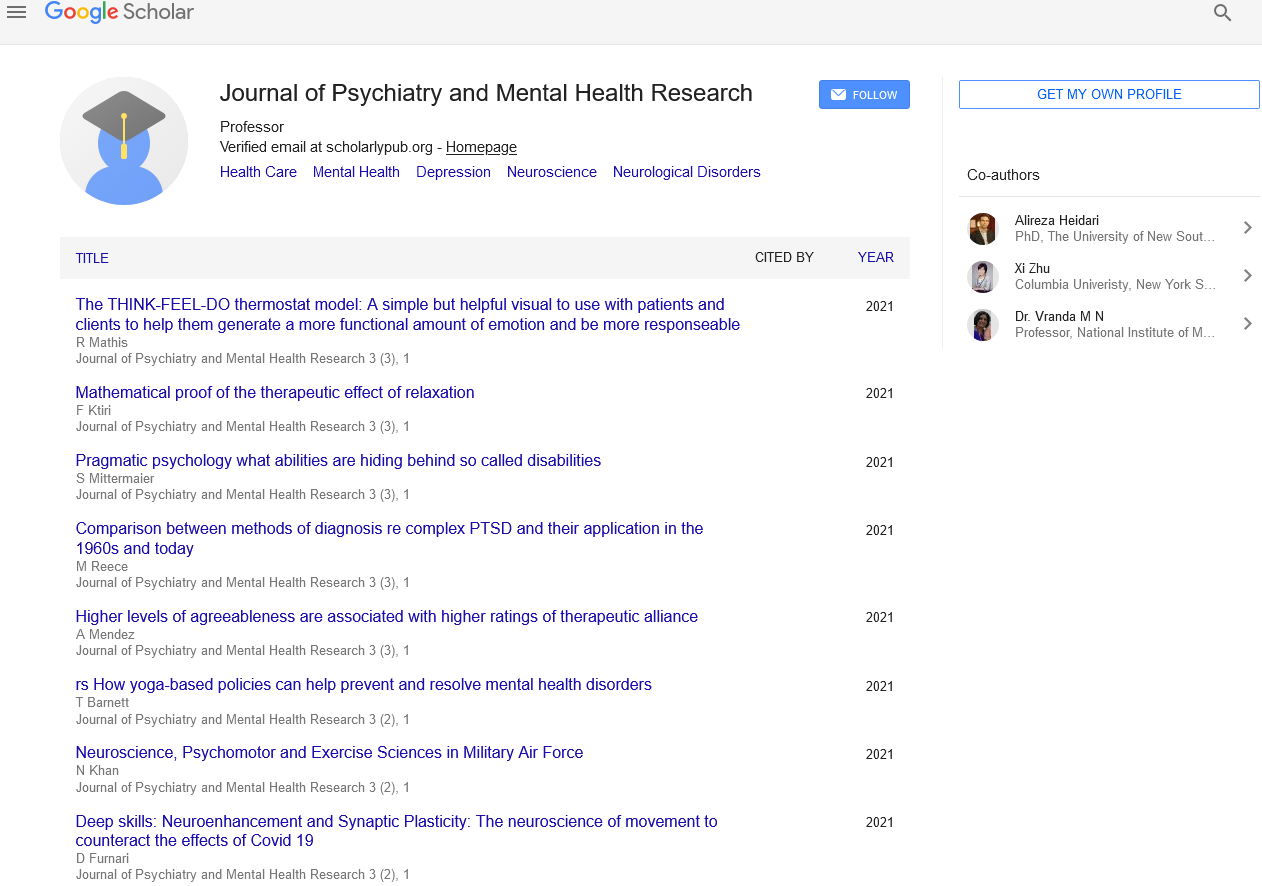
Sign up for email alert when new content gets added: Sign up
Abstract
Relapse prevention of treatment of obsessive-compulsive disorder
Author(s): Jyotsna SinghOver the past three decades, obsessive-compulsive disorder (OCD) has moved from an almost untreatable, life-long psychiatric disorder to a highly manageable one. This is a very welcome change to the 1%-3% of children and adults with this disorder as, thanks to advances in both pharmacological and psychological therapies, prognosis for those afflicted with OCD is quite good in the long term, even though most have comor-bid disorders that are also problematic. We still have far to go, however, until OCD can be described as either easily treatable or the effective treatments are widely known about among clinicians. This review focuses on the current state of the art in treatment for OCD and where we still are coming up short in our work as a scientific community. For example, while the impact of medications is quite strong for adults in reducing OCD symptoms, current drugs are only somewhat effective for children. In addition, there are unacceptably high relapse rates across both populations when treated with pharmacological alone.




